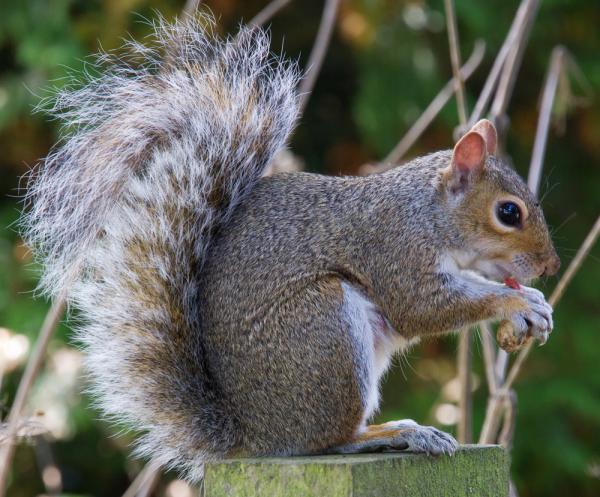From afar I once watched – and was captivated, actually, by its oddity – as a deer stood before a planting of big, bright identical flowers and began eating.
He would bite into one, chew for a moment – and spit it out. Then he began eating the next, and spit that out. And then again, and again, repeatedly engaging in the same task as if each chomp was his first attempt. I was unable to intercede, but for some reason the occurrence stuck with me, stoking intrigue about a deer's thought process, and about animal cognitive ability in general.
What was this deer thinking? How little brain capacity did he have that, in attempting to eat identical blooms, he'd have no recall of what he did seconds before? Or no smarts to realize that the next flower wasn't going to taste any better than the last? And finally, how common was this behavior among other animals?
These and other questions resurfaced recently after reading that some squirrels not only can remember a task they performed previously, but they can recall a specific one they did, not just that day or the previous week ... but years earlier. These grey squirrels, as it turned out, performed a problem-solving technique in a study to obtain food, having last done the identical task 22 months before.
(I don't know why this fascinates me, but it does, so my apologies for not providing something more substantive. And feel free to exit if you wish; no offense taken. But if you're sticking with me for this weekend reader, thanks, and consider the following as compared to the antics of that dopey deer.)
The study's team set out to examine "how memory, alongside behavioural traits, contributes to enhance problem-solving efficiency," according to its paper titled "How to stay perfect: the role of memory and behavioural traits in an experienced problem and a similar problem," published this week in the journal Animal Cognition.
In what was reportedly a humanely-conducted study lasting at least two years, during which time food and drink were in ample supply, researchers at the University of Exeter in Great Britain watched as five squirrels pressed levers to release hazelnuts, while accomplishing the task more quickly – from eight seconds to two seconds – over the course of a few tries. Then, after not being subjected to that same test for nearly two years, when the squirrels were they "took an average of just three seconds to get a hazelnut," the researchers wrote.
Squirrels, who forage for and hide nuts, have previously been known to have impressive long-term memories. But this skill is different in that instead of remembering locations of stored food, this surprising one centers on the ability to recall how to perform a particular task.
"This is not just remembering where things have been left, it shows they can recall techniques which they have not used for a long time," said co-author Dr Théo Robert, from Exeter's Center for Research in Animal Behaviour. "It's also different from what we see in the wild because they're remembering things for longer than the few months of memory needed to find hidden food."
And not only that, when researchers changed the task to make it look different, while still requiring the same technique to access the nuts, the squirrels adapted and succeeded.
There are other aspects to this research, a lot more technical, and to dive into them here would obscure this remarkable nugget of a discovery. And yes, this is a very small study. The authors recognized just that, writing that "we do need to be cautious in generalising from five squirrels to the whole species." And no, the findings will not set the world on fire because they can be adapted to address a larger issue. It's just interesting, and sometimes cool findings in themselves, at least to this observer, can be their own reward.




